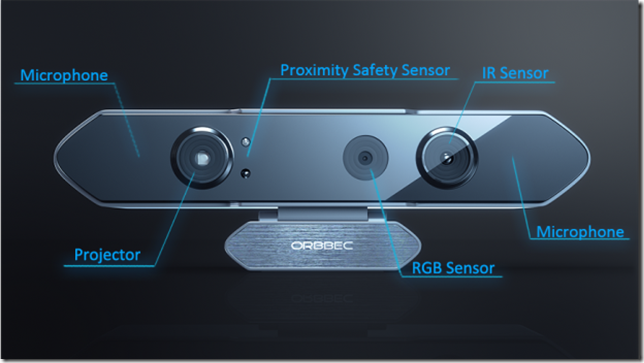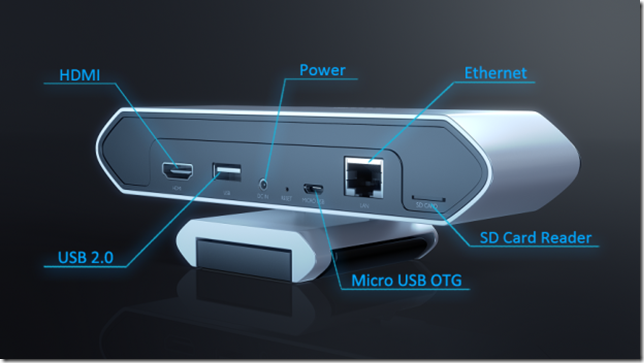Today Orbbec3D, my employer, announced a new depth sensor called the Orbbec Persee. We are calling it a camera-computer because instead of attaching a sensor to a computer, we’ve taken the much more reasonable approach of putting the computer inside our sensor. It’s basically a 3D camera that doesn’t require a separate computer hooked up to it because it has its own onboard CPU while maintaining a small physical footprint. This is the same sort of move being made by products like the HoloLens.
Unlike the Oculus Rift which requires an additional computer or Google Glass which needs a CPU on a nearby smartphone, the Persee falls into a category of devices that perform their own computing and that you can program as well as load pre-built software on.
For retail scenarios like advanced proximity detection or face recognition, this means compact installations. One of the major difficulties with traditional “peripheral” cameras is placing computers in such a way that they stay hidden while also allowing for air circulation and appropriate heat dissipation. Having done this multiple times, I can confirm that this is a very tricky problem and typically introduces multiple points of failure. The Persee removes all those obstacles and allows for sleek fabricated installs at a great price.
What has me truly excited about the Persee is Orbbec’s efforts to cater to the creative coding community and the way that the creative community has taken to it. These people are my heroes and having them give our product the nod means the world to me. People like Golan Levin, Phoenix Perry, Kyle McDonald, James George, Greg Borenstein, and Elliot Woods.
The device is OpenNI compatible but also provides it’s own middleware to add new capabilities and fill both creative and commercial needs (<– this is the part I’m working on).
Is it a replacement for Kinect? In my opinion, not really because they do different things. The Kinect will always be my first love and is the full package, offering high-rez video, depth and a 3D mic. It is primarily a gaming peripheral. The Orbbec Persee fills a very different niche and competes with devices like the Asus Xtion and Intel RealSense as realtime collectors of volumetric data – in the way your thermometer collects thermal data. What distinguishes the Persee from its competitors is that it is an intelligent device and not just a mere peripheral. It is a first class citizen in the Internet of Things — to invoke magical marketing thinking – where each device in the web of intelligent objects not only reports its status but also reflects, processes and adjusts its status. It’s the extra kick that makes the Internet of Things not just a buzzword, but also a step along the path toward non-Skynet hard AI. It’s the next big thing.

